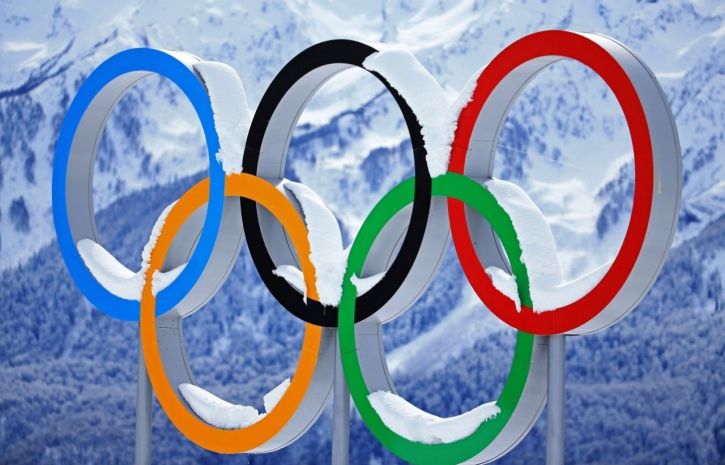Below is a great article written by Chris Carmichael of CTS Training. I wanted to share as it completely embodies my feeling of the need for unity in our neighborhoods, our country and in our world. I hope you’re enjoying the Winter Olympics!

What Olympians Know About Sport (That Politicians Don’t Understand)
I have and always will believe there would be fewer wars if there were more international sports competitions. That may sound naïve or farcical to some, but as a person fortunate enough to compete at the international level, represent the United States as an Olympian, and lead elite athletes in international competitions, I have seen the firsthand the power of sport to unite humanity and resolve conflict. Sport is the best type of diplomacy, just ask the unified Korean Olympic Team.
Effort Erases Bias
The political, social, religious, and ethnic differences between competitors fade as athletes compete. Effort and exhaustion are the ultimate equalizers. At the end of a competition, when you and your previously sworn enemy are hunched over, drenched with sweat, and gasping to catch your breath, there is no energy available for enmity. This is particularly true for athletes in team sports and mass-start individual sports because despite being opponents, you struggle together. You can see the effort written on the other athletes’ faces and hear their ragged breathing as it matches yours. Some biases and strongly held beliefs are harder to wear down, but I’ve always believed that if the race is long enough, competitors will only be able to see each other as equally human.
Athletes Want Competitors To Be At Their Best
Athletes are driven to win, but also understand the value of facing competitors’ best performances on the way to victory. We want our competitors to be excellent. We want them to have the best performances of their lives. It pushes us to achieve our greatest performances and adds value to the victory. And when we are beaten we want to make the victor beat us at our best, because that leaves no room for regret.
At the Opening Ceremony of the 1984 Olympics I marched into the Coliseum in Los Angeles as a member of the US Olympic Team. It was one of the proudest moments of my life, but something was missing. The Soviet Union boycotted the Games in response to President Jimmy Carter’s boycott of the 1980 Olympics in Moscow. Carter was wrong, and so was Soviet leader Leonard Brezhnev. The athletes knew it, even if the politicians didn’t. We missed out on the opportunity to match our best against their best and see who won. The world missed out on two opportunities to embrace the humanity that emerges when athletes compete on the same field, but is lost when adversaries only communicate from behind their high walls and military arsenals.
My views on competitors evolved over the course of my athletic and coaching careers, and there was a memorable time I let politics get in the way. When I was the National Coaching Director for US Cycling, I wanted to bar other nations from training on the 7-Eleven Velodrome in Colorado Springs prior to the Olympics. A velodrome at 6,200 feet above sea level was a competitive advantage! The US Olympic Committee Executive Director at the time, Brigadier General Harvey Schiller, Ph.D., summoned me to his office and told me in no uncertain terms, “We can’t do that. That’s not what the Olympics are about.” He was right. The goal is to win medals, but for the athletes, elevating the level of competition increases the medals’ intrinsic value.
The Unifying Power of Sport in 2018
In 1980 and 1984, politics got in the way of peace. In 2018, sport got it right. Competing as a unified Korea isn’t going to magically mend all differences between North and South Korea, but it enabled them to communicate over something other than threats. It brought hundreds of athletes together to enter the Olympic stadium as one team and one people, and experience competition together as teammates. Nothing, and I mean nothing, negative comes from that.
At an individual level, a recent example of adversaries encouraging excellence from each other comes from the sport of luge. As reported by Reuters, a few weeks before the 2018 Olympics a Russian luger lent Chris Mazdzer a sled in hopes it would help the American out of a slump. Mazdzer was fit, healthy, uninjured… and inexplicably slow. While the Russian’s sled didn’t fit Mazdzer, the gesture and support from within his sport may have done the trick. After two seasons of frustrating results, he won Team USA’s first-ever medal in Men’s Single Luge.
Sport has the power to unite on an international scale and at the neighborhood level. These days it is easier than ever to find reasons to be divided, but regardless of our differences people come together for youth sports, rec-center leagues, and playground pick-up games. The values exemplified by the Olympic Games are learned on the playground first, and the lessons sport teaches kids (and adults) about empathy, teamwork, problem solving, conflict resolution, sportsmanship and goal setting are perhaps more important now than ever before.
Long live sport.
Chris Carmichael
Olympian
Original Article at CTS Training: https://trainright.com/olympians-know-sport-politicians-dont-understand/?utm_source=newsletter&utm_medium=email&inf_contact_key=01fb45446de49e29ce8804be1649fcf5fe2cb85a41a4219b4f0c8de50e2aa9da

